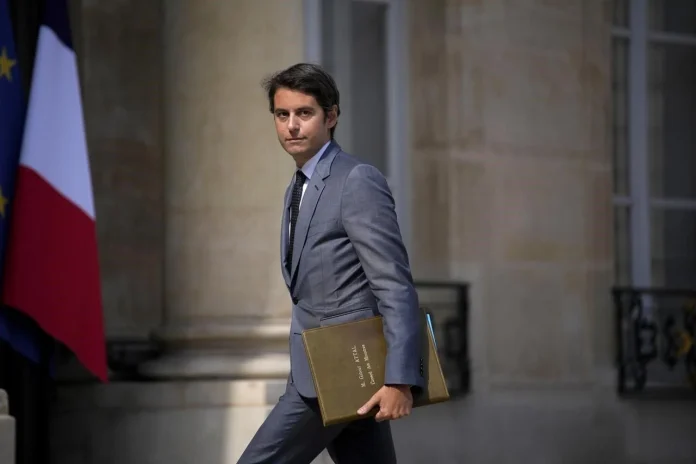Gabriel Attal is to visit German Chancellor Olaf Scholz in Berlin on Monday, marking his first foreign trip as France’s newly appointed prime minister.
Attal had already visited Germany last December as French Minister of Education. He highlighted the declining interest of the two countries in learning each other’s languages, noting that the problem has not disappeared even five years after the signing of the Aachen Treaty, aimed at stimulating co-operation and integration.
“The situation is not good. It is worrying.”
The Prime Minister pointed to a sharp decline in the number of students studying German in French schools. In secondary schools, the number of students who study the German language has fallen from 15.7 per cent to 13.5 per cent over the past three years. Today, German is seen as an unattractive choice at both school and university level.
There is a lack of dynamism. We don’t even have enough applicants to fill the vacancies for German teachers. Learning the culture and language of our neighbor is a top priority and our biggest challenge.
However, Attal’s meeting with German Chancellor Olaf Scholz on Monday is expected to focus on more pressing issues, as the chancellor’s spokesman announced back on Friday that the talks would focus on “bilateral, European and international issues, in addition to economic policies.”
During the meeting, Scholz and Attal are likely to talk about the chancellor’s call for more French military support for Ukraine. The top officials will also raise the future of a free trade agreement between the European Union and the Mercosur trade group in South America.
The agreement was supposed to be signed last weekend, but the French government stalled the process due to the massive farmer protests that spread across both France and Germany in recent weeks. As a result, Attal pledged on Thursday to allocate 150 million euros ($162 million) to help livestock farmers as part of an effort to support the struggling sector.
Livestock farmers are particularly concerned about the new agreement possibly coming into force, as imports of poultry, beef and pork from South America will increase significantly after the deal, jeopardising domestic production. French President Emmanuel Macron stated:
“In principle, I’m not against free trade agreements. But we can’t expect European producers to comply with more and more rules, and at the same time negotiate free trade agreements, like we did in the 1990s.”
